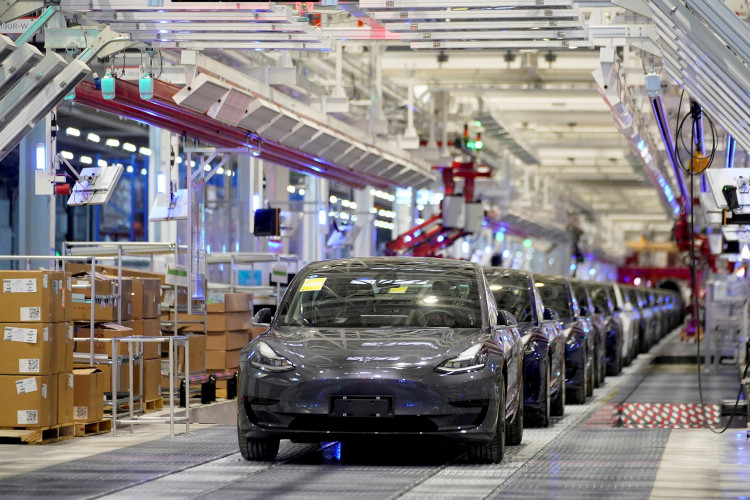China's domestic electric vehicle (EV) makers continued to dominate the overall market in terms of numbers sold in 2020, but it was again Tesla, Inc that commanded the more profitable luxury segment.
Tesla more than doubled its sales and market share in China in 2020 despite the enormous damage to demand wrought by the COVID-19 pandemic, and a slowdown in production at its Gigafactory Shanghai car assembly facility.
Tesla's EV sales in China amounted to $6.66 billion in 2020, a huge 123% jump compared to sales of $2.98 billion in 2019. Last year, Tesla accounted for 21% of China's total EV sales of $31.54 billion. In 2019, Tesla's China sales came to only 12% of the $24.58 billion total.
Tesla sold 115,024 EVs in China last year, according to data from the China Passenger Car Association (CPCA). The company's sales of $2.98 billion in 2019 are remarkable, nonetheless, since almost all the Tesla cars sold in China were imported from the United States.
Construction of a Tesla Gigafactory Shanghai was completed only in 2019, with the first Tesla Model 3 all-electric executive sedans rolling off the assembly lines in December.
The Model 3 remained China's best-selling luxury EV in 2020, a distinction it owned in 2019, said CPCA. Tesla is expected to boost its sales this year with the introduction of its Tesla Model Y electric compact crossover utility vehicle (CUV). The Model Y is based on the Model 3 platform but can seat up to seven passengers.
China's top domestic EV maker in 2020 remains SAIC-GM-Wuling Automobile (SGMW), a joint venture among SAIC Motor Corporation Ltd, General Motors Company and Liuzhou Wuling Motors.
Better known for its cheap and small EVs, SGMW makes commercial vehicles sold under the Wuling brand and consumer vehicles under the Baojun marque. Its Wuling Sunshine "mian bao che" microvan (or "bread box car,") is China's top selling microvan, claims SGMW.
SGMW sold 121,468 EVs in the first eleven months of last year, beating all other EV manufacturers, including Tesla. Its top selling EV was the Wuling Hongguang Mini EV.
Sales of new energy vehicles (NEVs), a definition that includes battery-powered electric vehicles, plug-in petrol-electric hybrids and hydrogen fuel-cell vehicles, increased 11% in 2020 to 1.37 million units.
NEV sales are expected to hit 1.8 million units this year. The central government wants NEVs to account for 20% of its overall auto sales (gasoline and electric) by 2025, versus 5% today.






